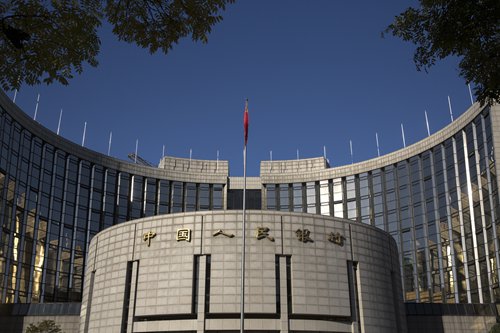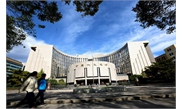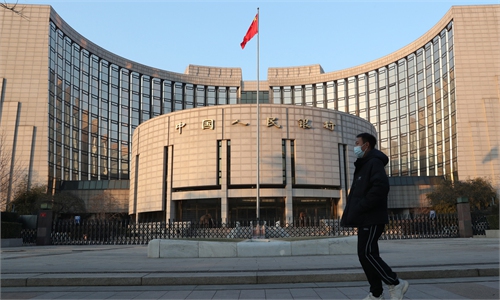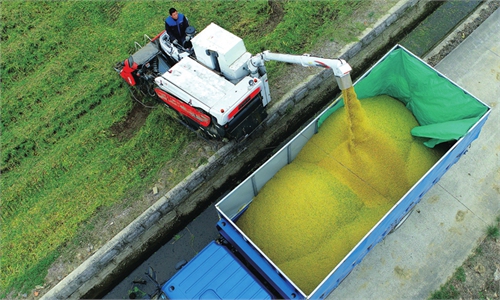
The headquarters of the People's Bank of China in Beijing on November 3 Photo: IC
China will flexibly use a variety of monetary policy tools to increase support for the real economy, the governor of the People's Bank of China (PBC), the central bank, said during a G20 meeting on Wednesday.
The remarks from Yi Gang, the PBC governor, at the virtual meeting of G20 finance ministers and central bank governors came amid challenges to the recovery of the global economy, including the rebound of the pandemic, rising inflationary pressure and geopolitical tensions.
On Tuesday, the International Monetary Fund (IMF) further cut its forecast for global economic growth by 0.8 percentage points to 3.6 percent in 2022 due to the Russia-Ukraine conflict, which is expected to further increase inflation.
The IMF downgraded its growth forecast for China this year to 4.4 percent. The country is stepping up efforts to promote full resumption of production in some pandemic-hit provinces and cities like Northeast China's Jilin Province and Shanghai.
At the virtual meeting held by Indonesia, which holds the G20 presidency this year, participants said that the G20, as the main platform for global economic coordination, should maintain multilateral cooperation and take measures to address new risks that the global economy faces while continuing to deal with the impact of the pandemic.
Some participants were concerned about the impact of the geopolitical situation on the supply and prices of energy and food, while others noted that major developed economies should communicate properly when withdrawing from supportive policies in order to avoid negative effects.
All parties reaffirmed their continued support for low-income countries to cope with economic shocks due to the pandemic. The meeting also welcomed the establishment of the Resilience and Sustainability Trust (RST) by the IMF to provide long-term financial support to countries in need. The RST is set to come into full operation in October this year.
Participants also supported the implementation of the common framework on debt disposal in a timely, orderly and coordinated manner, as well as strengthening the global financial safety net with the IMF at its center.
The meeting noted that the development of sustainable finance is important for promoting green and inclusive economic recovery and achieving sustainable development. During the meeting, all participants looked forward to continuing to advance key work like promoting green financing in developing countries and the establishment of financial transformation policy, as well as the implementation of the G20 Sustainable Finance Roadmap, which is being co-led by the PBC and the US Department of the Treasury.



